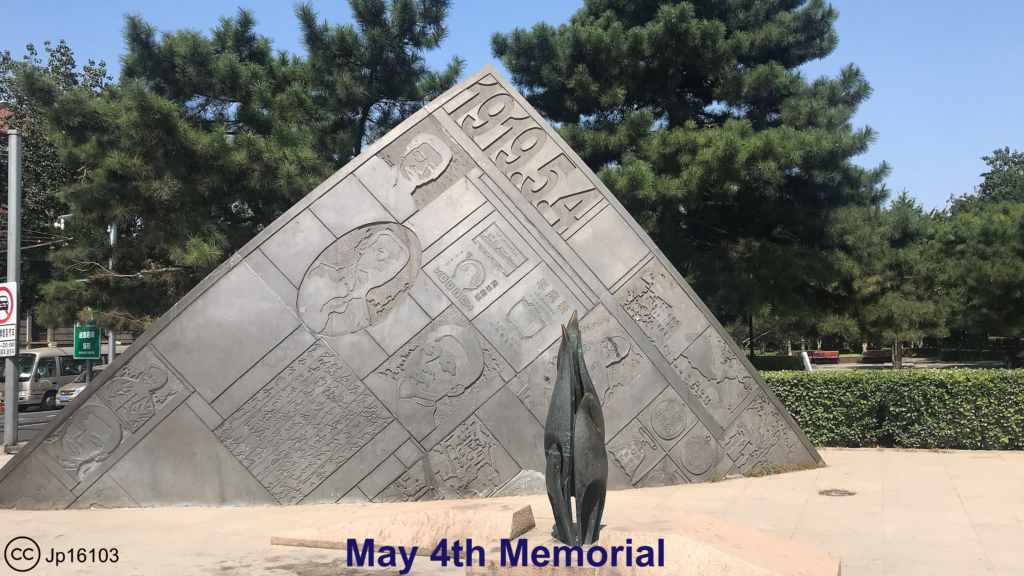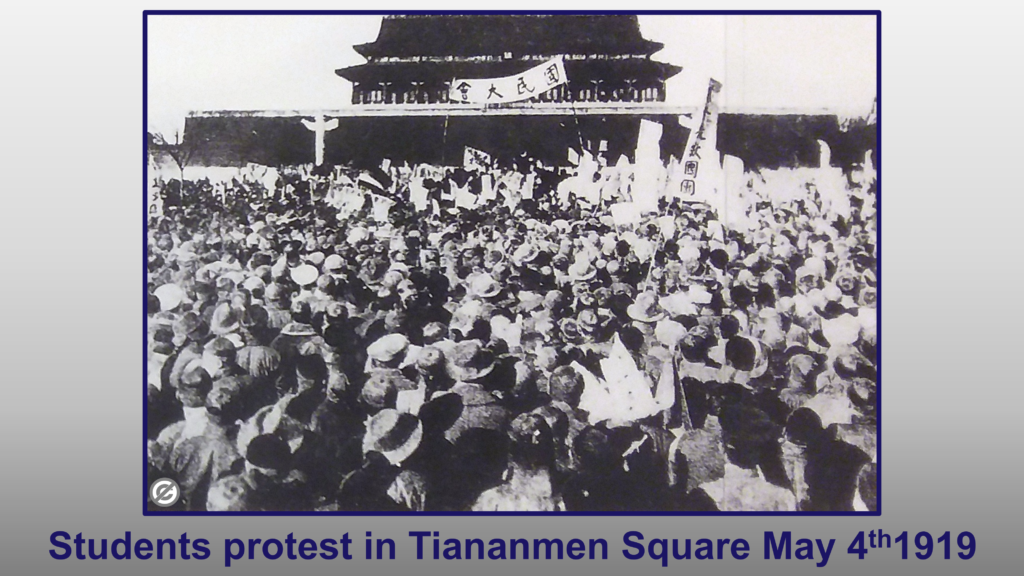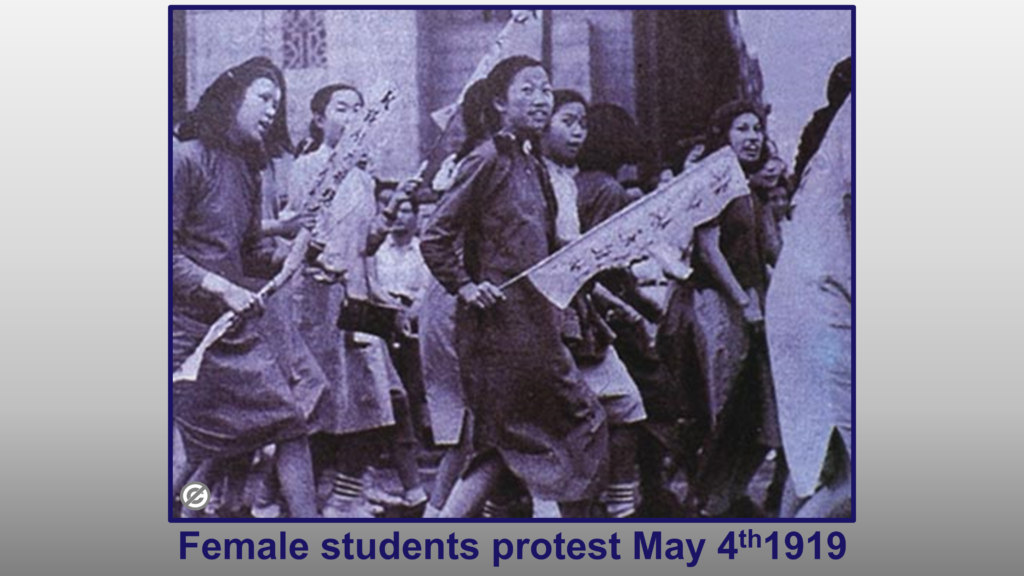Todays post is different, because for the first time I have a guest contributor.
At our Toastmasters meeting today I was speaking to my friend Michelle He about my search for greater diversity of topics on The History PM.
She mentioned that today was a special day for China, the birthday of the “May Forth Movement”.
On May 4th 1919 thousands of students took to the streets to protest the continuing shameful treatment of China by the European powers.
As part of the Versailles Treaty the former German territories in China were ceded to Japan rather than being returned to China.
Michelle promised to write something, and here it is.
Although it does not relate to project management, it was too good an opportunity to highlight a movement that is little known or appreciated in the West.
China’s May Fourth Movement. By: Michelle He
The historical significance of May the 4th goes way beyond the superficial Star Wars line “May the force be with you.” China’s May Fourth Movement during the early 20th century marked China’s transition from monarch to republic.
The last emperor of Qing Dynasty was dethroned in 1911 after the revolution. China became a republic, electing Dr. Sun Yat-sen as the first president. He was the founding father of the Nationalist Party and modern China, like the Chinese George Washington. Chinese intellectuals started the New Culture Movement in the 1910s and 1920s to denounce the “old” Chinese culture and promote a modern and western culture. They introduced science (affectionately called Mr. Sai) and democracy (affectionately called Mr. De). They simplified classical Chinese and wrote modern poems. Some of the movement leaders were Mr. Chen Duxiu and Mr. Hu Shi.
After World War I ended in 1918, at the Versailles Peace Conference, a treaty was signed to transfer the former German concessions in Shandong province to Japan. This was such a disgrace to China as it actually won the war.
On May 4, 1919, students from Peking University and other colleges in Beijing protested against this. The patriotic demonstrations spread across the country. There were also strikes and boycotts against Japanese goods in some cities. This was the famous May Fourth Movement, which originated from the New Culture Movement. Now May 4th is the National Youth Day in China and my alma mater Peking University’s anniversary.
As I reflect on the Chinese history from a century ago, I have to ponder if the Chinese intellectuals made the right choice. There were really two choices – communism or conservatism. The Chinese were enamored by the French Revolution and the Bolshevik Revolution that overthrew their monarch and promised a utopia for their citizens. The Chinese translation for conservatism sounds negative. People wanted to be cool. In July 1921, Chinese Communist Party (CCP) was formed by some of the New Culture Movement leaders like Chen Duxiu. Communism promised eliminating injustice, corruption and selfishness. There will be no classes or barriers. We would all be equal. It sounds very appealing. Chinese intellectuals fell in love with this ideal, hoping to reform China. But 100 years later, have they brought heaven on earth? Have they conquered everything? Apparently, they can’t even conquer the tiny corona virus.
Conservatism, on the other hand, recognizes that human beings are not perfect, and we cannot eliminate the evil side of human nature. Instead of fighting the losing battle of turning people into angels, conservatives focus on building a society that minimizes the damages from people’s evil actions. The American political system of separation of power tried to put in check and balance and limit a government’s power. Because conservatism values traditions, it was also less popular in China during the early 20th century. The Chinese Communist Party certainly destroyed the old world, but is their new world much better? Has it really achieved fairness, equality and prosperity for everyone? How many good intentions have caused bad results? The other New Culture Movement leader Mr. Hu Shi chose conservatism. His famous saying was “more research on problems, less discussion on isms”. After CCP gained power in China in 1949, Mr. Hu followed the Nationalist party to Taiwan.

Michelle He


